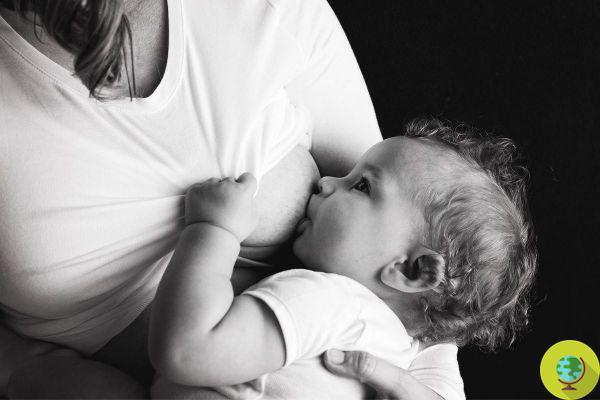
Don't store avocado like this: it's dangerous
Many new mothers are forced to prematurely stop breastfeeding their young. A new study seeks to clarify the causes of this phenomenon
PFAS is an acronym indicating highly harmful chemicals which, unfortunately, are increasingly part of our life. They are also called 'perennial' chemicals because, in addition to damaging the environment (also contaminating food and water) they do not degrade over time and end up accumulating in nature. Used for countless purposes, from tableware to personal care products, they are found virtually everywhere in the environment and cause a wide range of diseases - including ulcers, thyroid disorders, cancers; moreover, they also affect the reproductive capacity of animals, but also ours.
Now a new study has shown another, disturbing side effect of exposure to these substances, which would affect the ability of new mothers to naturally breastfeed their babies. The researchers followed the pregnancy and delivery of more than 1.000 women in Denmark and found that higher concentrations of PFAS in the blood of new mothers corresponded to a 20% chance of stopping breastfeeding early.
These man-made chemicals accumulate in our bodies and have very negative effects on our reproductive system - he explains Clara Amalie Gade Timmermann, author of the study. - As breastfeeding is a crucial time for both mother and baby health, the effects of PFAS exposure on the ability to feed newborns with breast milk could have long-term health consequences.
To analyze the connection between PFAS and breastfeeding, the researchers measured the levels of the chemicals in the blood samples taken from the women, which were divided into five categories based on their chemical composition. Subsequently, the study participants provided information on how breastfeeding was proceeding: some women wrote a weekly 'report', while others completed questionnaires three and eighteen months after delivery.
In recent decades, the interest in breastfeeding has grown more and more, given the obvious benefits for the mother and for the baby: breastfeeding, in fact, avoids the risk for the baby of contracting many infectious diseases (such as diarrhea, ear infections ...), while allowing the mother to return faster to the physical shape she had before pregnancy and to significantly reduce the risk of developing cancers. However, more and more women are being forced to stop breastfeeding early - and now a reason is beginning to emerge.
Follow us on Telegram | Instagram | Facebook | TikTok | Youtube
Fonte: Journal of Clinical Endocrinology and Metabolism
We also recommend:
- Boppy breastfeeding pillow: in the US 7 babies died due to incorrect use
- Breastfeeding could really help kill the coronavirus. I study
- Powdered milk: full of hydrocarbons and pollutants. The best and worst according to a German test


























